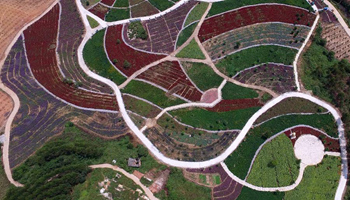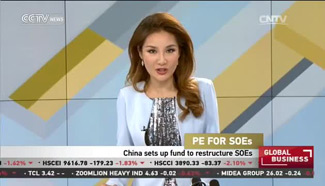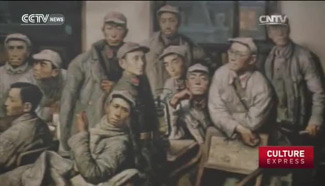BEIJING, Sept. 26 (Xinhua) -- The changing international and economic landscape calls for adaptations of the international system highlighting a global governance based on dialogues and cooperation in an apolar world.
Chinese expert Zhu Ning with the Peking University recently made the comments following the General Debate of the 71st Session of the United Nations General Assembly, while refuting Western theories keen to define China as a subverter of global order.
Changes in the international system are in history often marked by a shift of leadership along with the decline of the world's major power. The Thucydides trap is among the theories invented to describe the rise of China as the world's largest economy second only to the United States, said the researcher with China's Co-innovation Center for State Governance.
However, this or the theory of long-term change of world system, among others, all feature categorizing countries into challengers or preservers of the existing order. They thus reckons a confrontation between China and the United States as inevitable with misinterpretation of China's peaceful rise, Zhu said in an article carried by the Xinhuanet.
In addition, branding China as a challenger, or an upgraded version of "China threat", serves as an attempt to find a new enemy for the United States to justify its global hegemony.
Countries "should support the leading role of the UN and its Security Council in global affairs. Countries need to be supportive of steady reform and improvement of global governance mechanisms, so as to adapt to the changing international political and economic landscape," Chinese Premier Li Keqiang has said while addressing the UN general debate.
This displays China's firm stance to support the existing global order led by the United Nations and to manage international relations on the basis of the UN charter, which has worked to keep global peace for more than 70 years, Zhu noted.
China's contribution to peace talks on the nuclear crises in Iran and on the Korean Peninsular, peacekeeping missions in Africa and progresses in fields ranging from fighting terrorism and climate change to promoting global economy and environment, among others, have demonstrated its cooperative role in global affairs and respect for the international system and multilateral rules.
Moreover, in Zhu's eyes, Li's remarks imply China's national strategy of peaceful development.
To play as a keeper of the existing global order is obviously in the best interests of China, Zhu said, for it owed its achievements made since its opening-up in the late 1970s to a peaceful external environment and a rapid globalization.
Such a strategic identity decides where China's national interests lie as well as its strategic orientation towards cooperation instead of confrontation with the world's major powers.
As the world following the end of the Cold Era is evolving amid new transnational and global challenges in the aftermath of the 2008 global financial crisis, the rise of emerging economies including China is a blessing to this process by bringing cooperation between countries to a broader platform, said the Chinese expert.
New challenges calls for adaptations of the international system. Zhu believes that a global governance based on dialogues and cooperation in an apolar world will help build a global community with a peaceful prospect.










